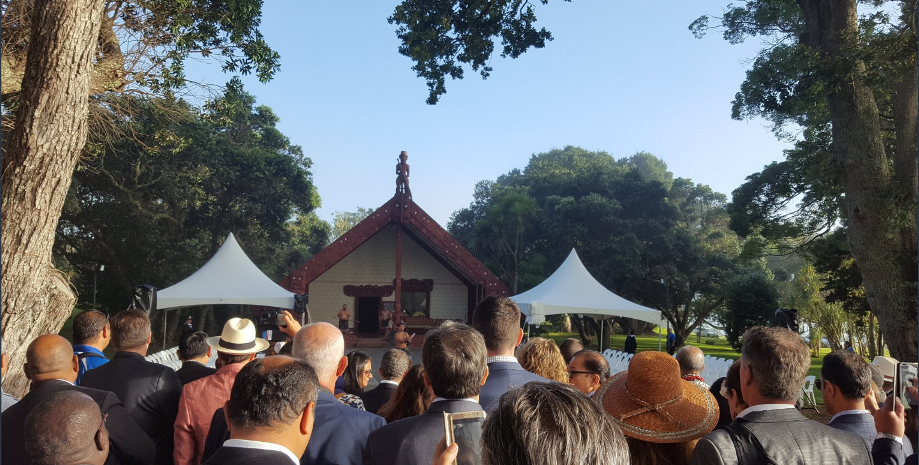
We adopted a strategy to increase our engagement with iwi and build Mātauranga Māori capacity within the Ministry.
The Māori economy is estimated to be worth around $50 billion, with a significant portion of this invested in the primary sector.
Māori have strong interests in New Zealand’s international engagement, including environmental issues, the impact of international agreements on Te Tiriti o Waitangi provisions, indigenous and human rights, and the Māori diaspora in Australia.
To give impetus and direction to our ongoing commitment to engage with Māori, in December 2017, the Ministry adopted a Māori Engagement Strategy. The vision for the Strategy is Ka hikitia te whanaungatanga a te Manatu Aorere me te Iwi Māori: Māori have confidence in their partnerships with the Ministry.
The strategy will ensure that our engagement has integrity and develops a strong understanding of what Māori stakeholders want. It will also build our mātauranga Māori capability through developing Māori leadership within the Ministry, and tell the story better of Māori economic development.
Building relationships
Relationship building and engagement in areas of priority interest for the Ministry and for Māori is a crucial and ongoing focus of the strategy.
An example of this at work is our collaboration with the Federation of Māori Authorities (FOMA). A peak Māori industry body in the primary sector, FOMA is composed of 150 Māori Authorities with a combined asset base of more than $11 billion. Its members have significant interests in seafood, forestry, dairy, sheep and beef, horticulture, property, energy and investments. They also have an emphasis on promoting an indigenous economy based on Māori values that prioritise working collectively, supporting whanau and hapū, and preserving the environment.
In 2017, the Ministry accepted an invitation to deliver a tailored workshop on free trade agreements and trade policy to a masterclass as a part of the lead up to FOMA’s 30th Anniversary. This provided the opportunity to engage with senior Māori business leaders who are involved in supporting regional growth, and to hear their perspectives on New Zealand’s trade and economic policy.
We have set up quarterly meetings for dialogue with FOMA, formalising the previous intermittent meeting structure. In the coming years, we aim to increase this outreach through the foundations established in the strategy to contribute towards Māori economic growth.

